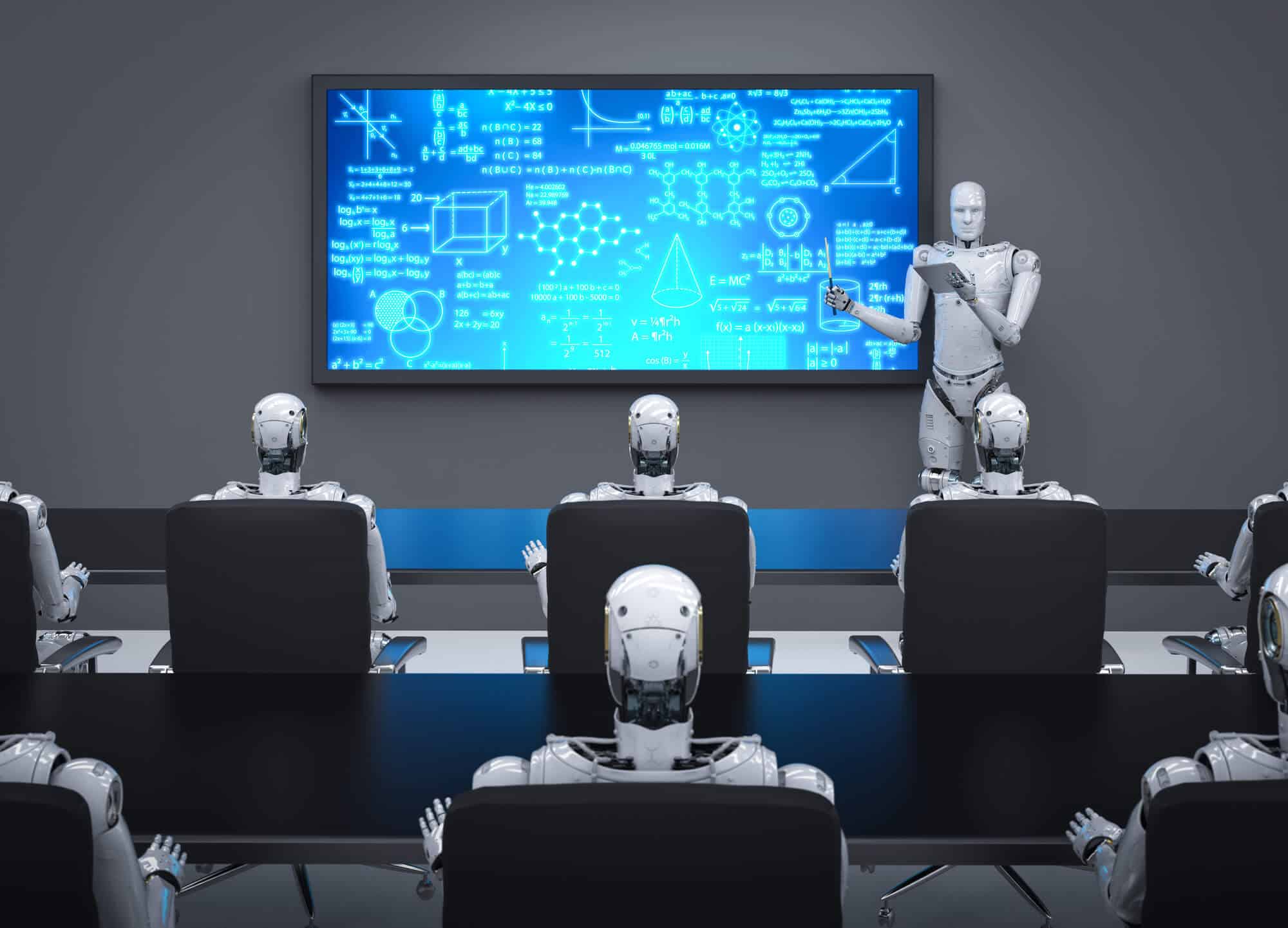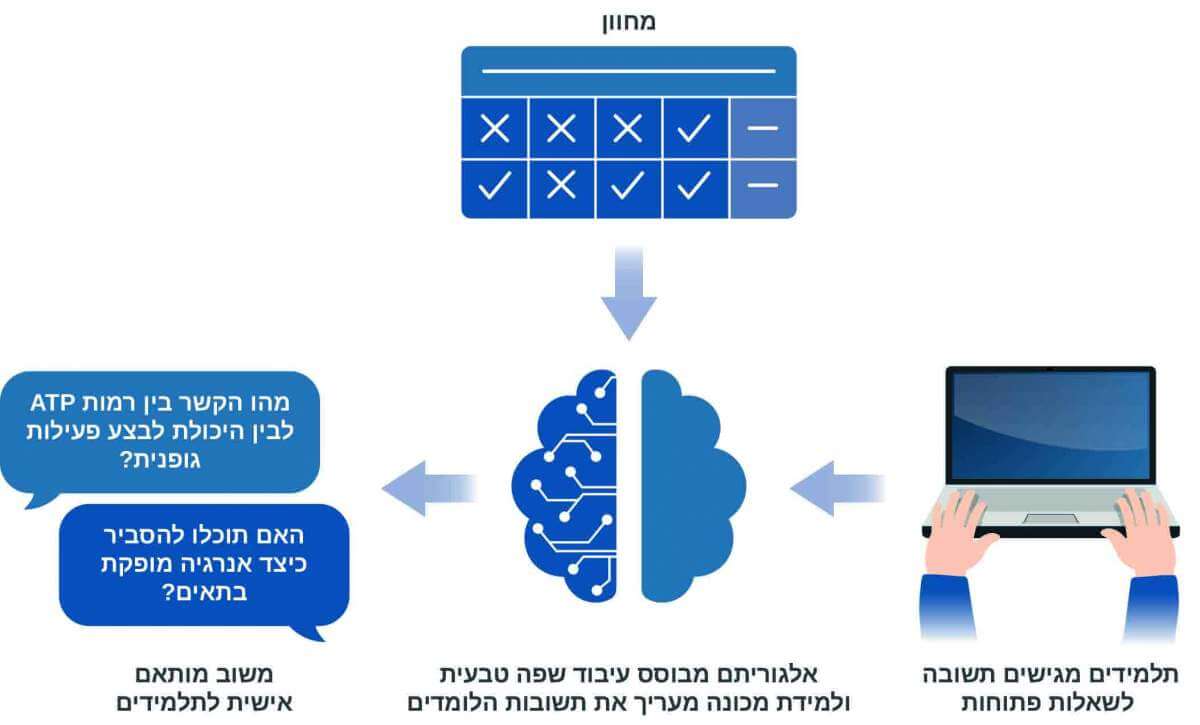In the science teaching department at the Weizmann Institute harnessing artificial intelligence to support teachers in personalized teaching

"Is it possible to be right 100% of the time?", this question troubled the rest of "Mind" in the children's animation series "Arthur" following the arrival in the class of an experimental pilot: a smart board named Hugo who claims to be free of mistakes. However, when Hugo corrects the teacher, Mr. Mouse, for a correct answer, it is revealed that the promise was far-reaching - Hugo is right only 98% of the time.
בScience Teaching Department At the Weizmann Institute of Science they face similar questions, when they try to develop innovative technologies to improve learning and teaching. When they ask the teachers how artificial intelligence can help them in their work, the most common answer is: "assistance in checking open questions". It may sound like a futuristic fantasy - like Hugo from "Arthur" or maybe like the perfect teaching assistant that both saves valuable time and provides useful insights - but in the research group of Dr. Giora Alexandron We are working on exactly this type of applications.
The group recently published a study in which it showed how machine learning and natural language processing algorithms can be "trained" to automatically evaluate student answers to open questions in biology according to various characteristics, with a high level of agreement with pedagogical experts and teachers. While in English the research in the field already leads to commercial developments, this is the first research on the subject in Hebrew.

Moreover, first experiments in which teachers and students received pedagogical recommendations based on the computerized analysis, showed an improvement in the students' achievements and the teachers' ability to receive quick feedback on the level of knowledge in the classroom. The research, conducted in collaboration with the biology group in the department led by Prof. Anat Yordan and with a pilot group of biology teachers, was based on the infrastructure of raspberry - A digital learning environment developed in the department, and hundreds of teachers and tens of thousands of science students throughout Israel, 40% of them in schools in the periphery, use it. The research was led by the post-doctoral researcher Dr. Moriah Arieli, who specializes in teaching biology and scientific writing, and the doctoral student Tanya Nazaretsky, who specializes in artificial intelligence applications, and was also assisted by Dr. Tzipi Hoffman.
"There is no substitute for good teachers"
As is clear from the incident of the smart board in "Arthur" - there is no substitute for Mr. Mouse, the wise teacher who guides the students. "The corona epidemic has accelerated the adoption of distance learning technologies, but many studies have made it clear that there is no substitute for human presence," explains Dr. Alexandron. "There is no doubt that the ideal role of technology is to support teaching and learning processes led by teachers and their empowerment."
Based on this insight, the group created a new field of research focusing on teacher-artificial intelligence interaction, in collaboration with Prof. Motlo Kokorova from University College London, who specializes in human-computer interaction and has researched the subject in the context of recommendation systems in the field of medicine and in the field of finance. Many professionals, it turns out, suffer from cognitive biases that may lead to excessive trust or lack of trust in recommendations based on artificial intelligence. Teachers too, as revealed in the research, suffer from biases in these contexts, for example the effect of previous acquaintance with the students on the teachers' willingness to adopt recommendations that contradict their expectations. However, as the researchers have shown, appropriate training can develop teachers' ability to adopt AI-based recommendations and make informed use of them.
For example, as part of the research and in the spirit of the TV show "The Masked Singer", biology teachers were asked to identify who the "masked teacher" was who scored best in the opinion of other teachers, when they were asked to evaluate students' open answers. Here a surprise awaited everyone: when the "mask" was removed, the teachers were amazed to discover that the outstanding evaluator was actually an algorithm based on natural language processing that "learned" from them how to evaluate answers to open questions.
Insights from this research influenced the design of another technological tool: GrouPer - an interactive tool for teachers that uses machine learning algorithms to support personalized teaching. This tool allows teachers, among other things, to map the students according to knowledge profiles and it was developed in collaboration with the physics teaching group led by Prof. Idit Yerushalmi and with a group of pilot teachers who helped adapt to the needs of the field. Dr. Assaf Bar-Yosef, Dr. Michal Walter and Carmel Bar also participated in the development of the tool. The technological development was led by Nadav Kablarchik and the interface design was done by Edna Rolnik.
Despite the promising results and the enthusiasm of the teachers who participated in the experiments with the various tools, a large-scale implementation of such systems is expected to encounter difficulties both from the technological side, both from the assimilation in the field with teachers and students, and in terms of economic feasibility. "We have a vision in which artificial intelligence works for the teachers and together with them in various tasks to help them adapt their teaching to the unique needs of each student, while combining algorithms, data and pedagogical expertise", concludes Dr. Alexandron and emphasizes: "There is no substitute for good teachers - Our goal is to give them tools that will empower them and allow them to excel."
More of the topic in Hayadan:
- Recommendation: invest half a billion NIS in promoting the field of artificial intelligence in industry and academia
- Do artificial intelligence systems really have their own secret language?
- Using artificial intelligence to reveal magnetism
- Prof. David Blau, University of Michigan We have developed artificial intelligence accelerators for tiny end devices
